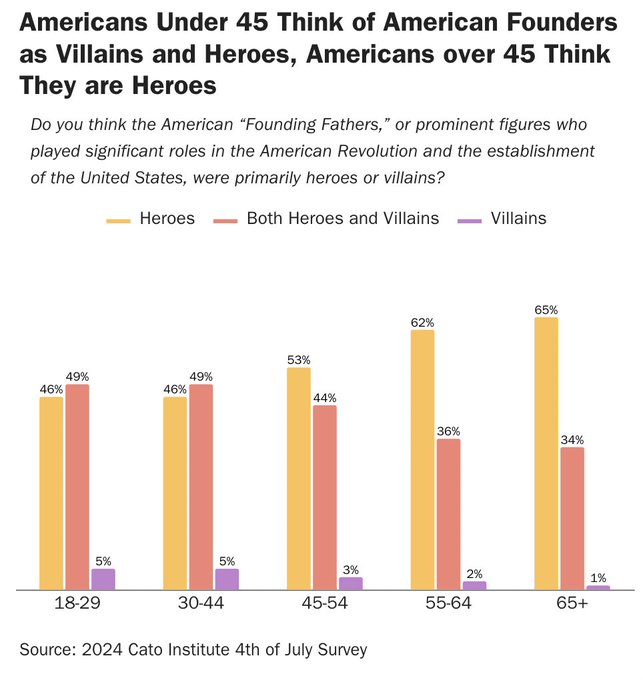Atheist biologist Jerry Coyne [often a foil on classical theism for
Thomist Edward Feser, my guru] resigns from the atheist Freedom From
Religion Foundation for "mission creep." He wrote--as a biologist--that
there are only two genders. This of course offended intersectionality,
of which anti-religion cultism is just a part.
I resign from the Freedom from Religion Foundation
This is the result of a dispute I’ve explained before (see here). Because the FFRF has caved into to gender extremism, an area having nothing to do with its mission, and because, when they let me post an article on their website about this, they changed their mind and simply removed my post, I have decided I can no longer remain a member of their board of honorary directors. So be it. Everything is explained in this email I sent FFRF co-Presidents Annie Laurie Gaylor and Dan Barker about an hour ago, to wit:
Dear Annie Laurie and Dan,
As you probably expected, I am going resign my position on the honorary board of the FFRF. I do this with great sadness, for you know that I have been a big supporter of your organization for years, and was honored to receive not only your Emperor Has No Clothes Award, but also that position on your honorary board.
But because you took down my article that critiqued Kat Grant’s piece, which amounts to quashing discussion of a perfectly discuss-able issue, and in fact had previously agreed that I could publish that piece—not a small amount of work—and then put it up after a bit of editing, well, that is a censorious behavior I cannot abide. I was simply promoting a biological rather than a psychological definition of sex, and I do not understand why you would consider that “distressing” and also an attempt to hurt LGBTQIA+ people, which I would never do.
As I said, I think these folks should have moral and legal rights identical to those of other groups, except in the rare cases in which LGBTQIA+ rights conflict with the rights of other groups, in which case some kind of adjudication is necessary. But your announcement about the “mistake” of publishing my piece also implies that what I wrote was transphobic.
Further, when I emailed Annie Laurie asking why my piece had disappeared (before the “official announcement” of revocation was issued), I didn’t even get the civility of a response. Is that the way you treat a member of the honorary board?
I always wanted to be on the board so I could help steer the FFRF: I didn’t think of it as a job without any remit. The only actions I’ve taken have been to write to both of you—sometimes in conjunction with Steve, Dan (Dennett), or Richard—warning of the dangers of mission creep, of violating your stated goals to adhere to “progressive” political or ideological positions. Mission creep was surely instantiated in your decision to cancel my piece when its discussion of biology and its relationship to sex in humans violated “progressive” gender ideology. This was in fact the third time that I and others have tried to warn the FFRF about the dangers of expanding its mission into political territory. But it is now clear that this is exactly what you intend to do. Our efforts have been fruitless, and if there are bad consequences I don’t want to be connected with them.
I will add one more thing. The gender ideology which caused you to take down my article is itself quasi-religious, having many aspects of religions and cults, including dogma, blasphemy, belief in what is palpably untrue (“a woman is whoever she says she is”), apostasy, and a tendency to ignore science when it contradicts a preferred ideology.
I will continue to struggle for the separation of church and state, and wish you well in that endeavor, which I know you will continue. But I cannot be part of an organization whose mission creep has led it to actually remove my words from the internet—words that I cannot see as harmful to any rational person. I am not out to hurt LGBTQIA+ people, and I hope you know that. But you have implied otherwise, and that is both shameful for you and hurtful for me.
Cordially
Jerry







